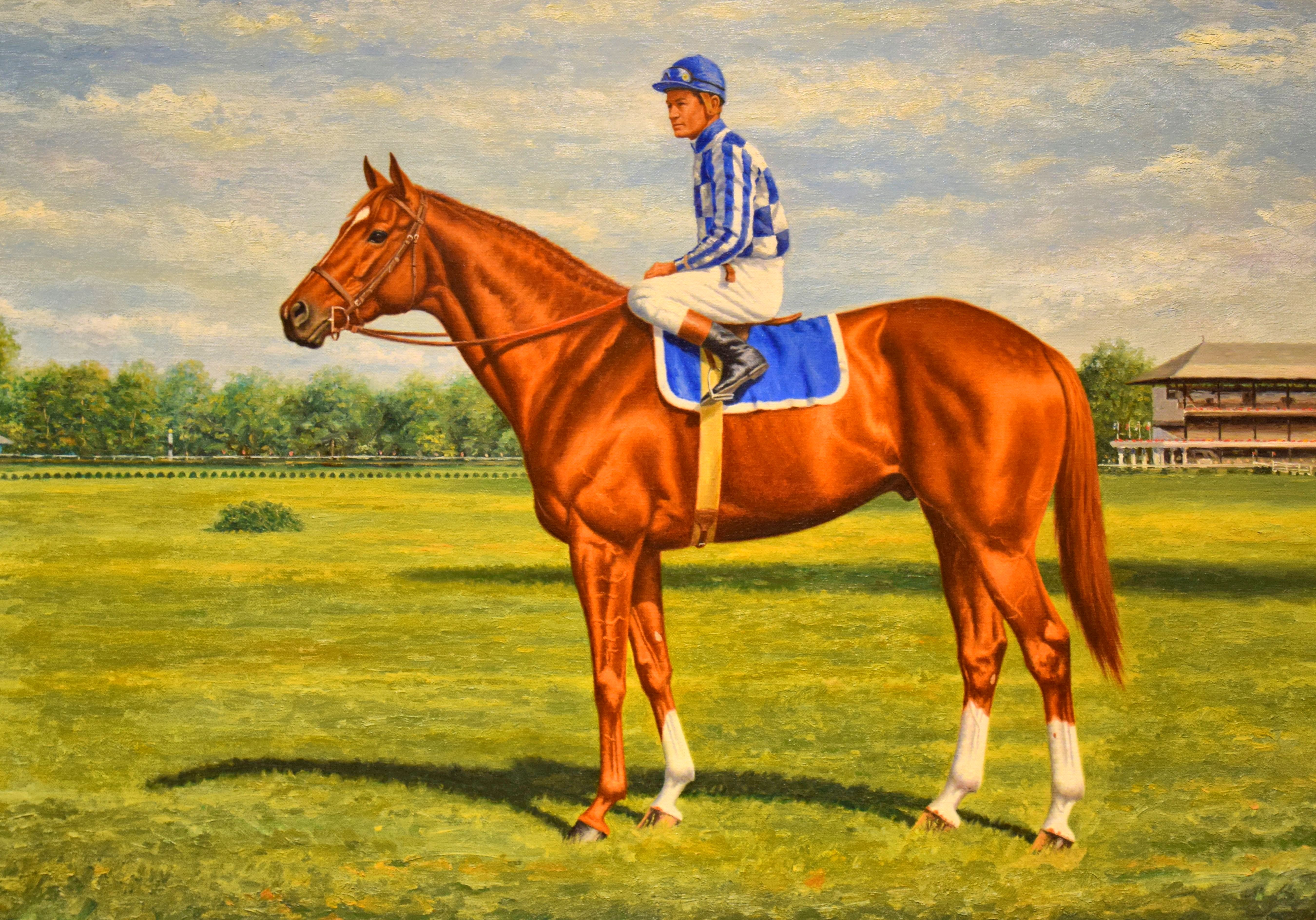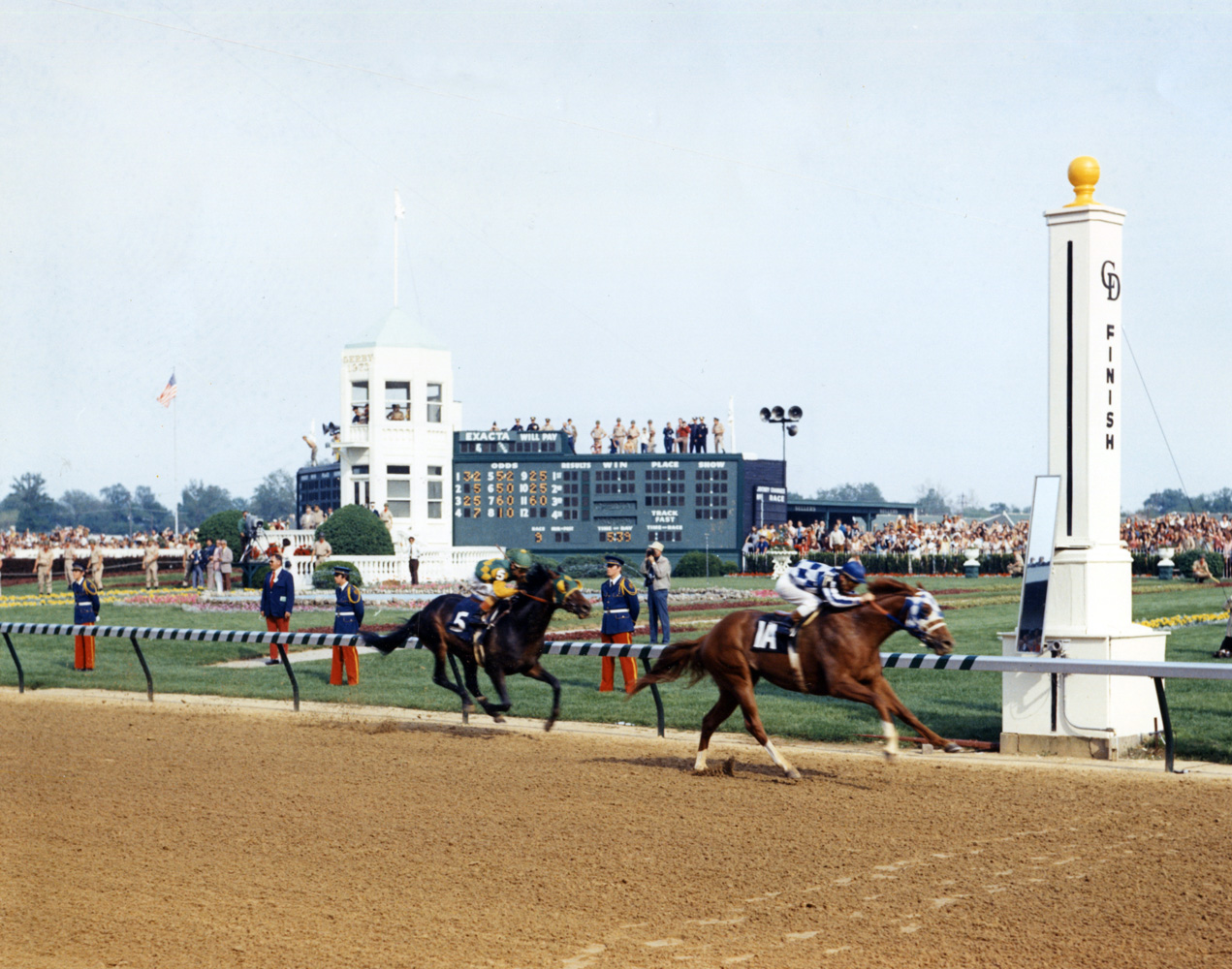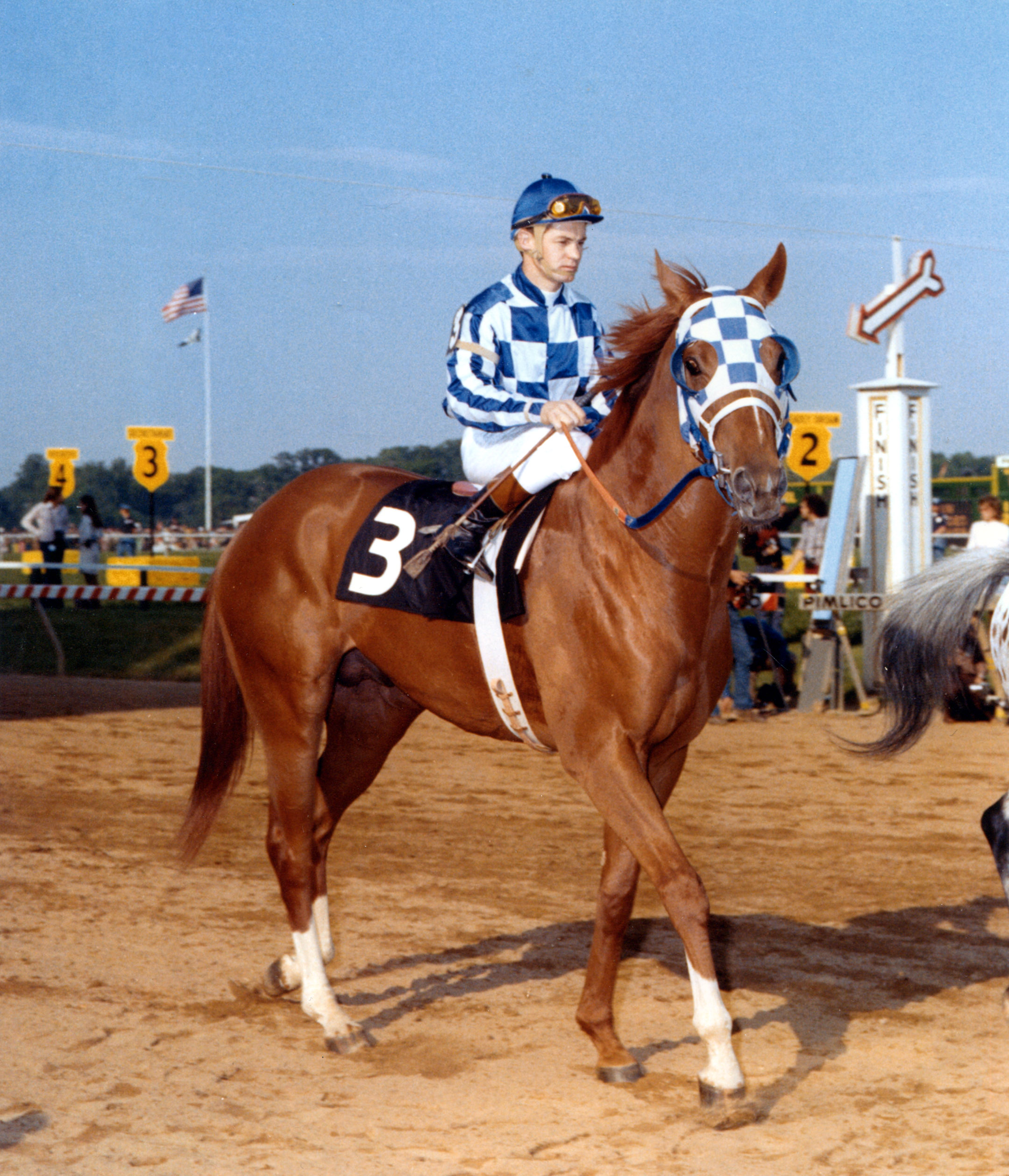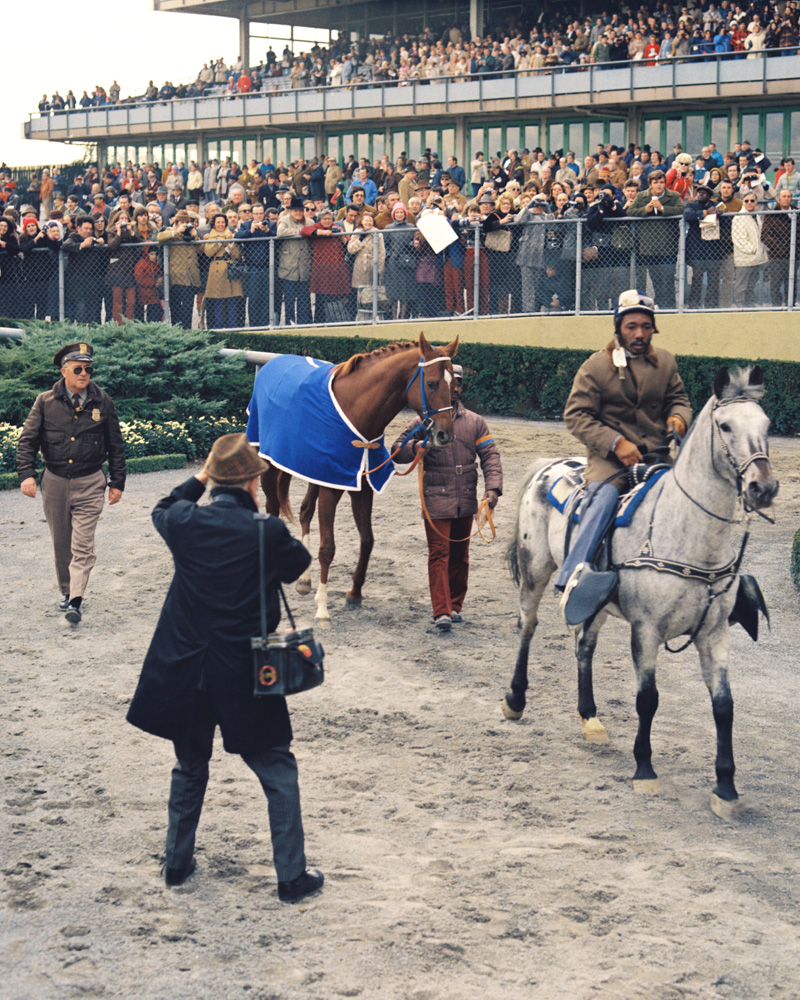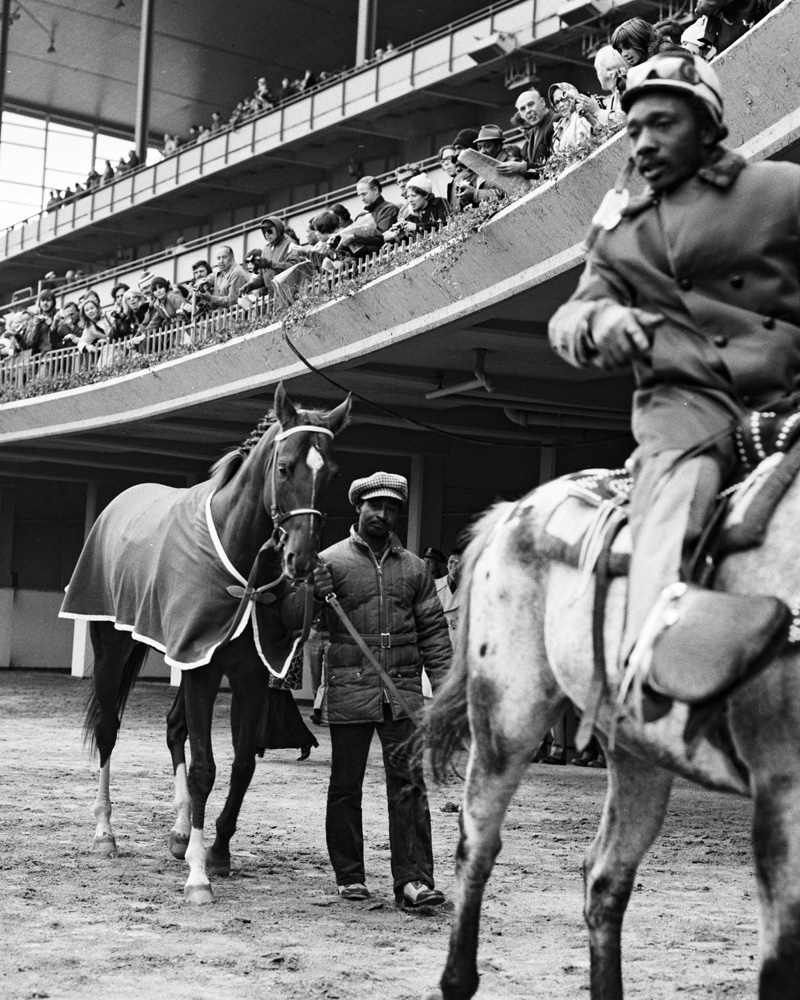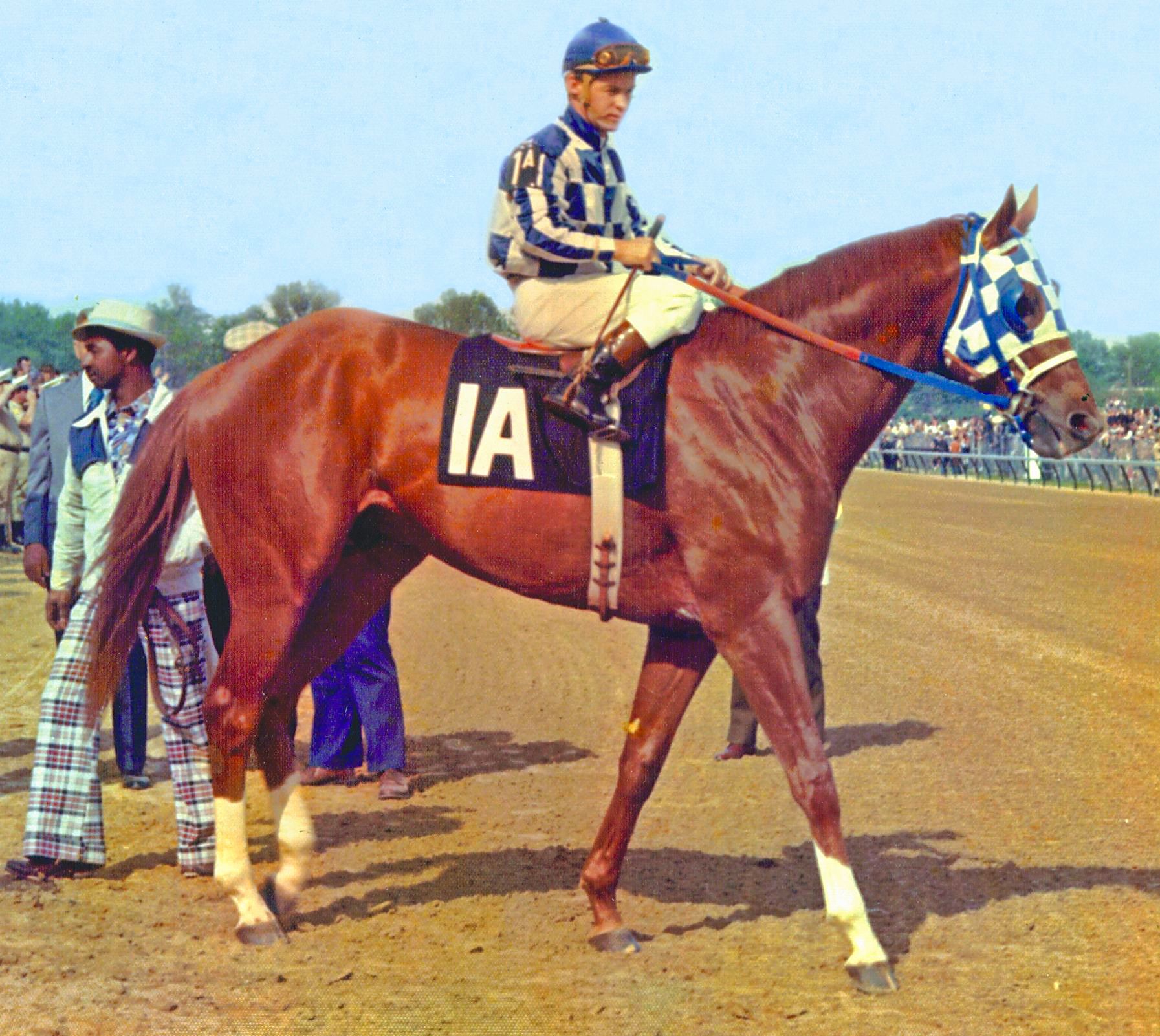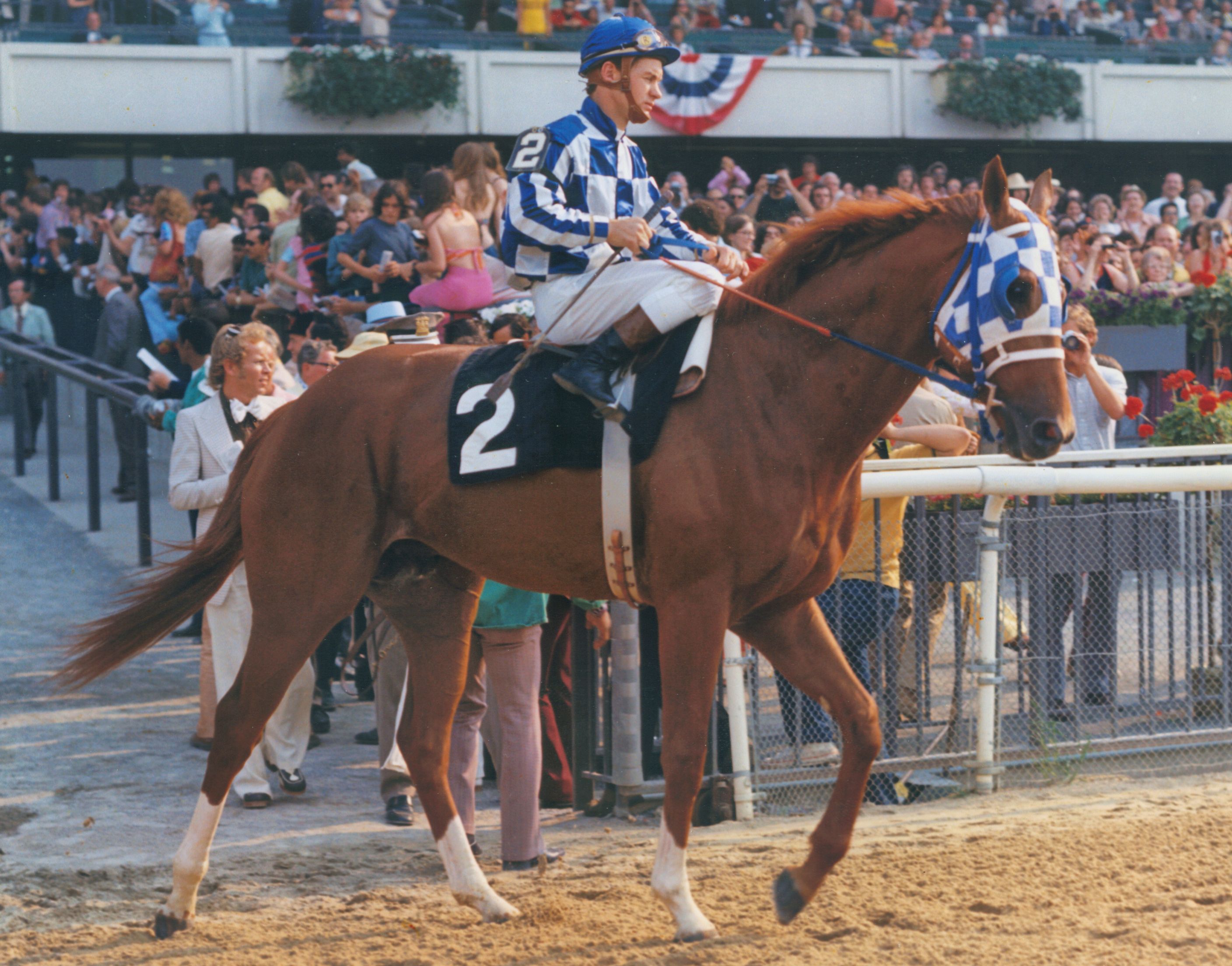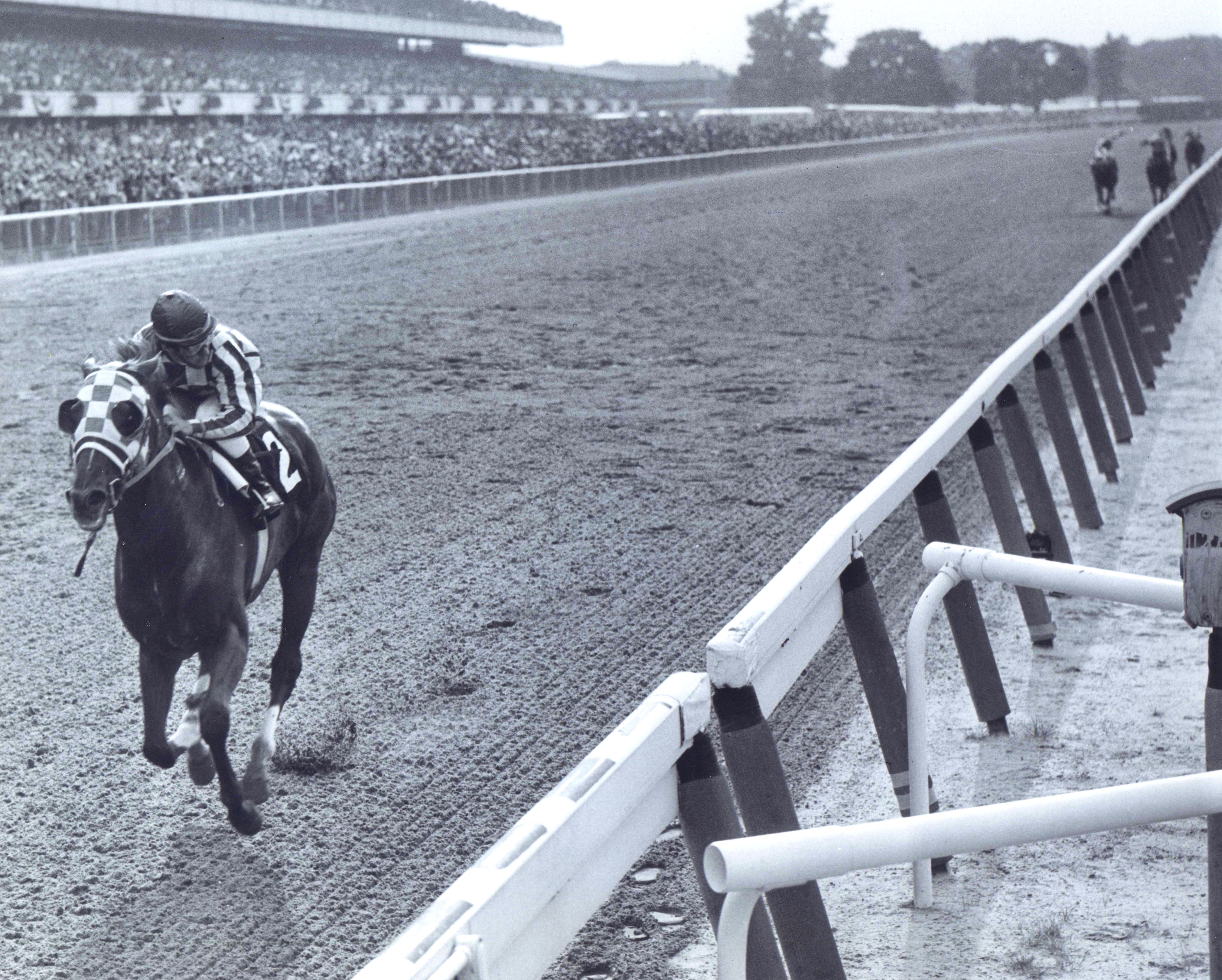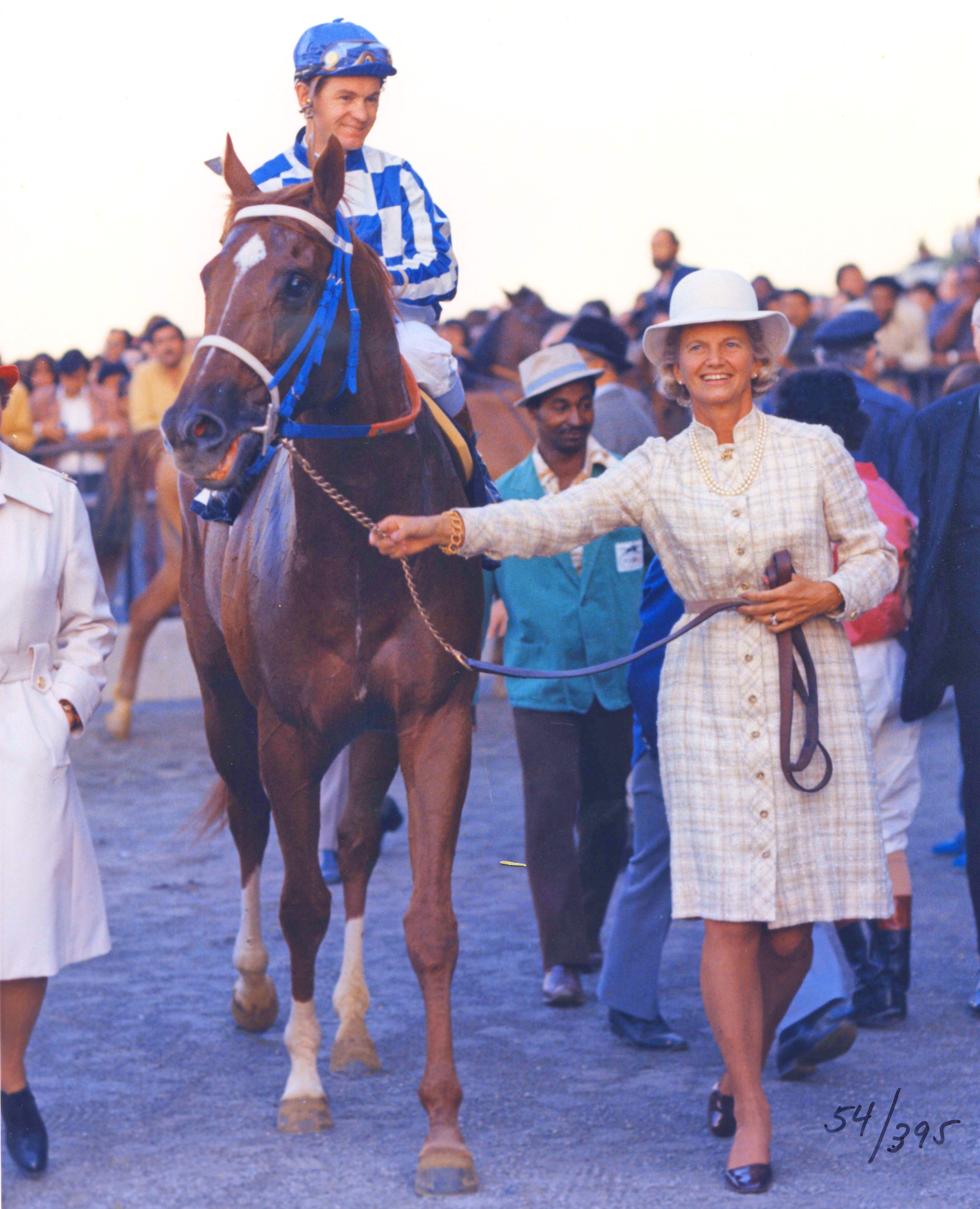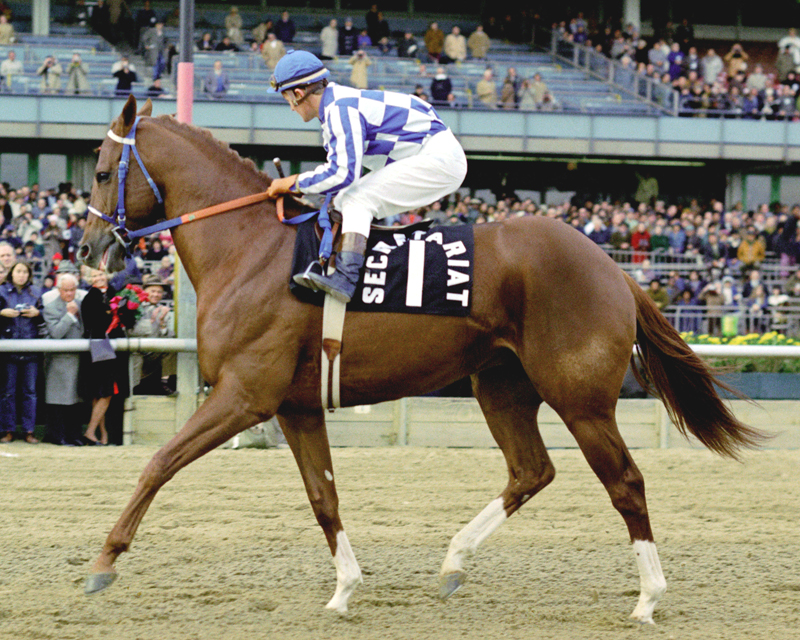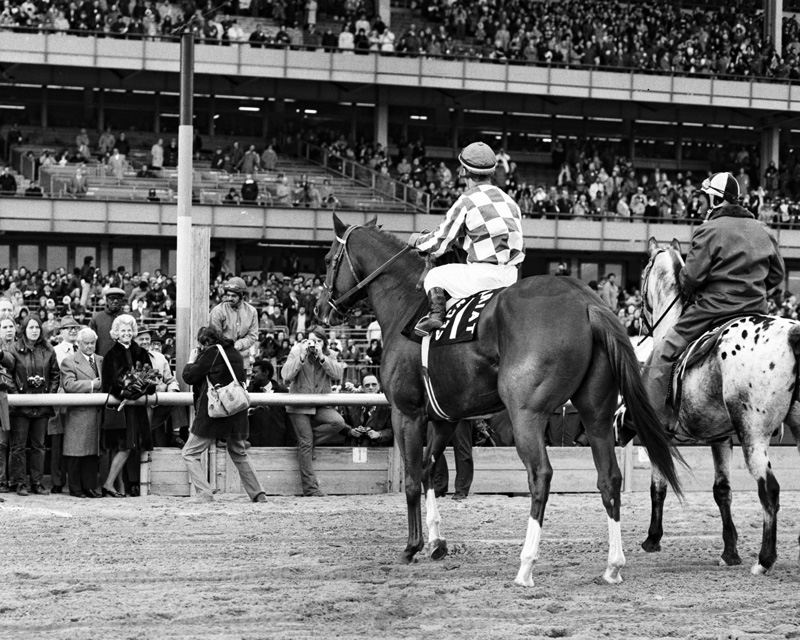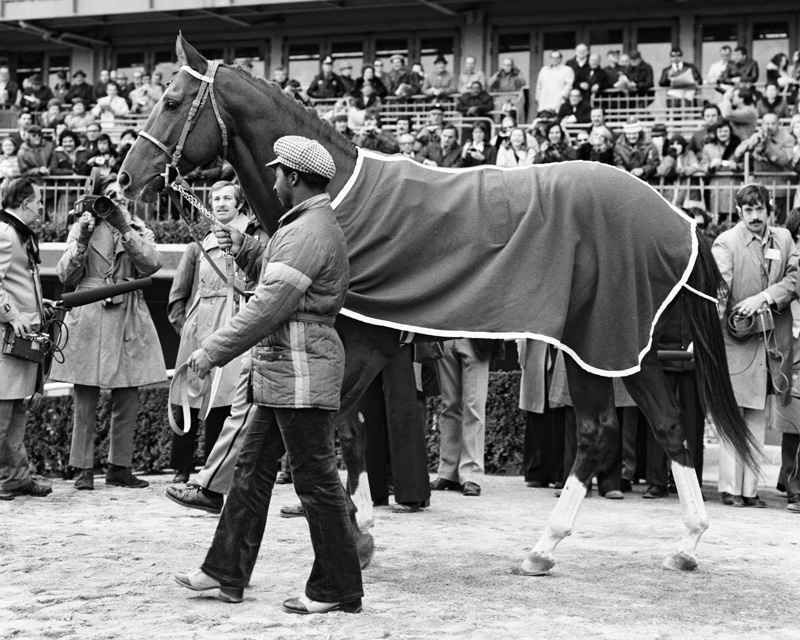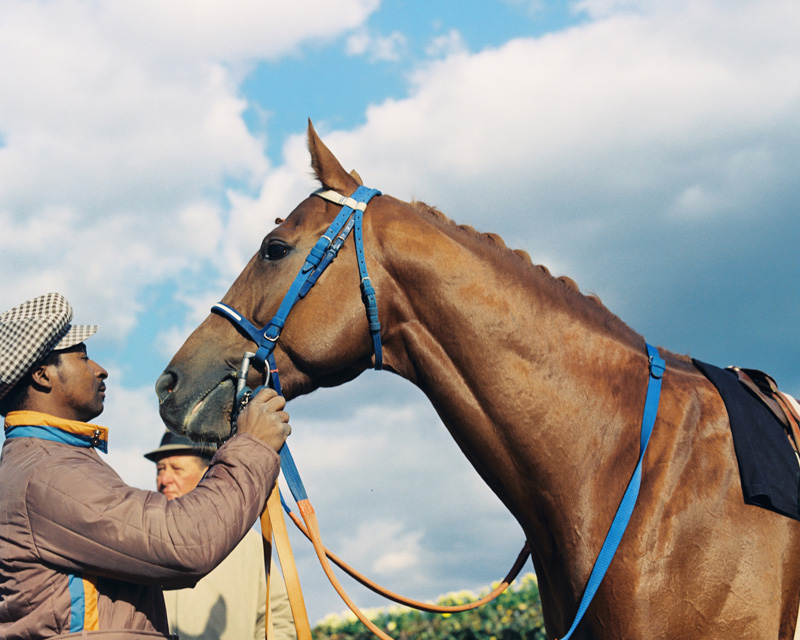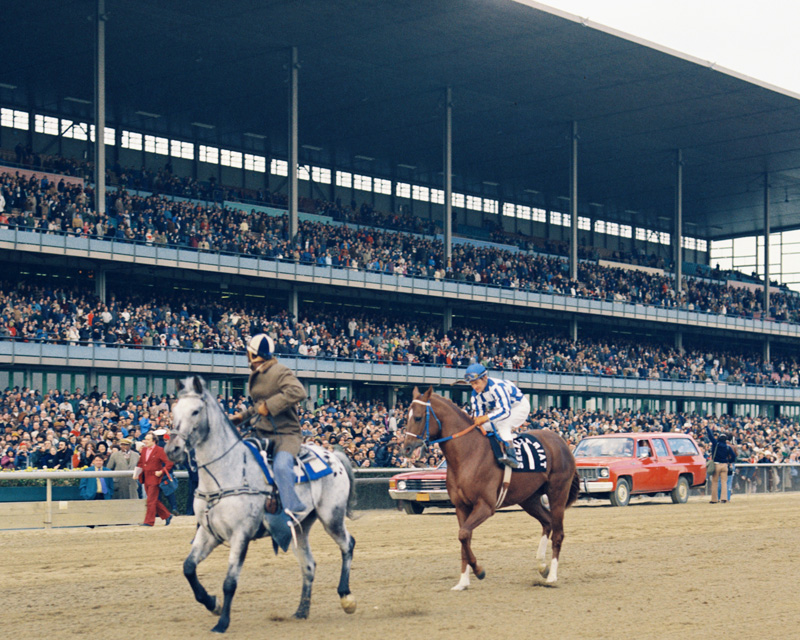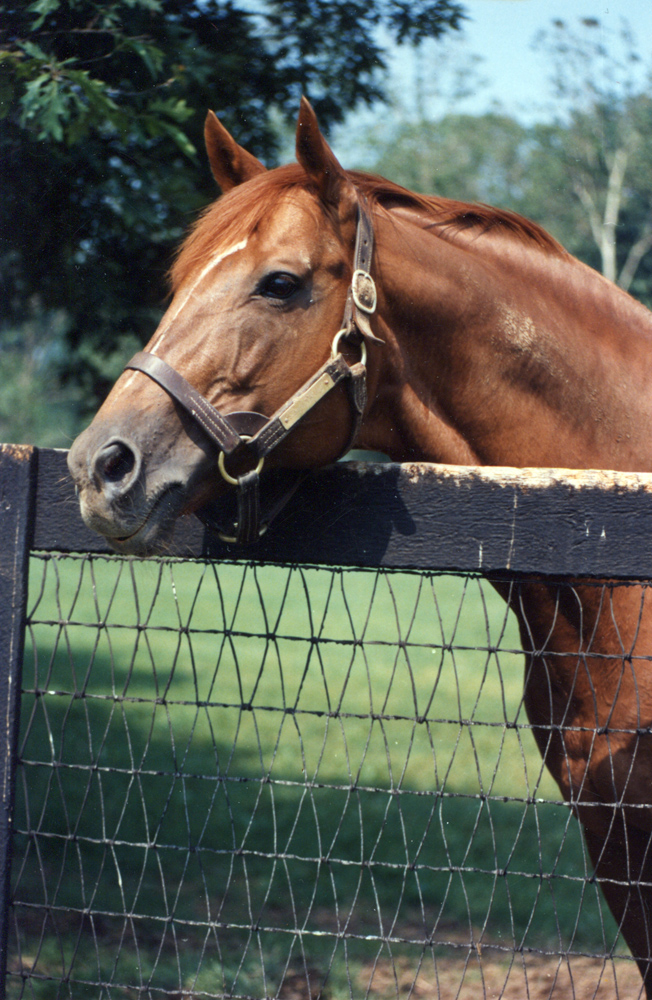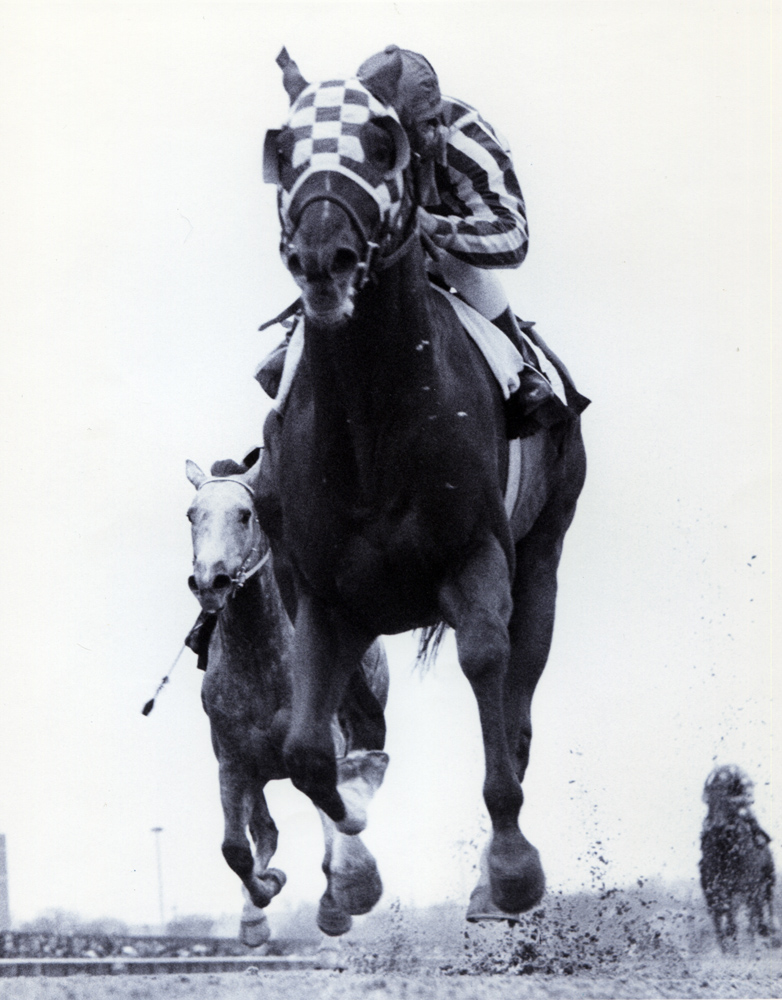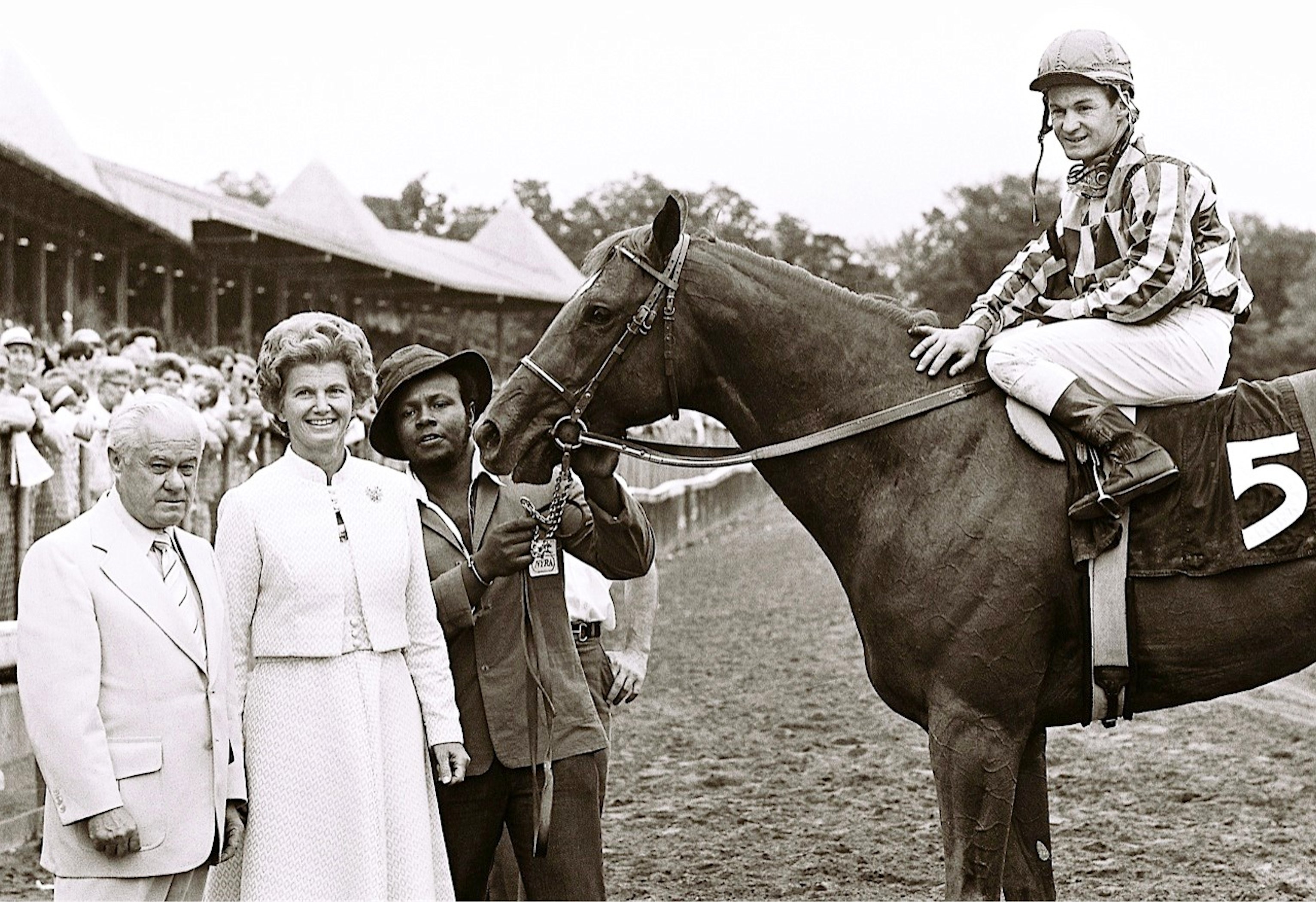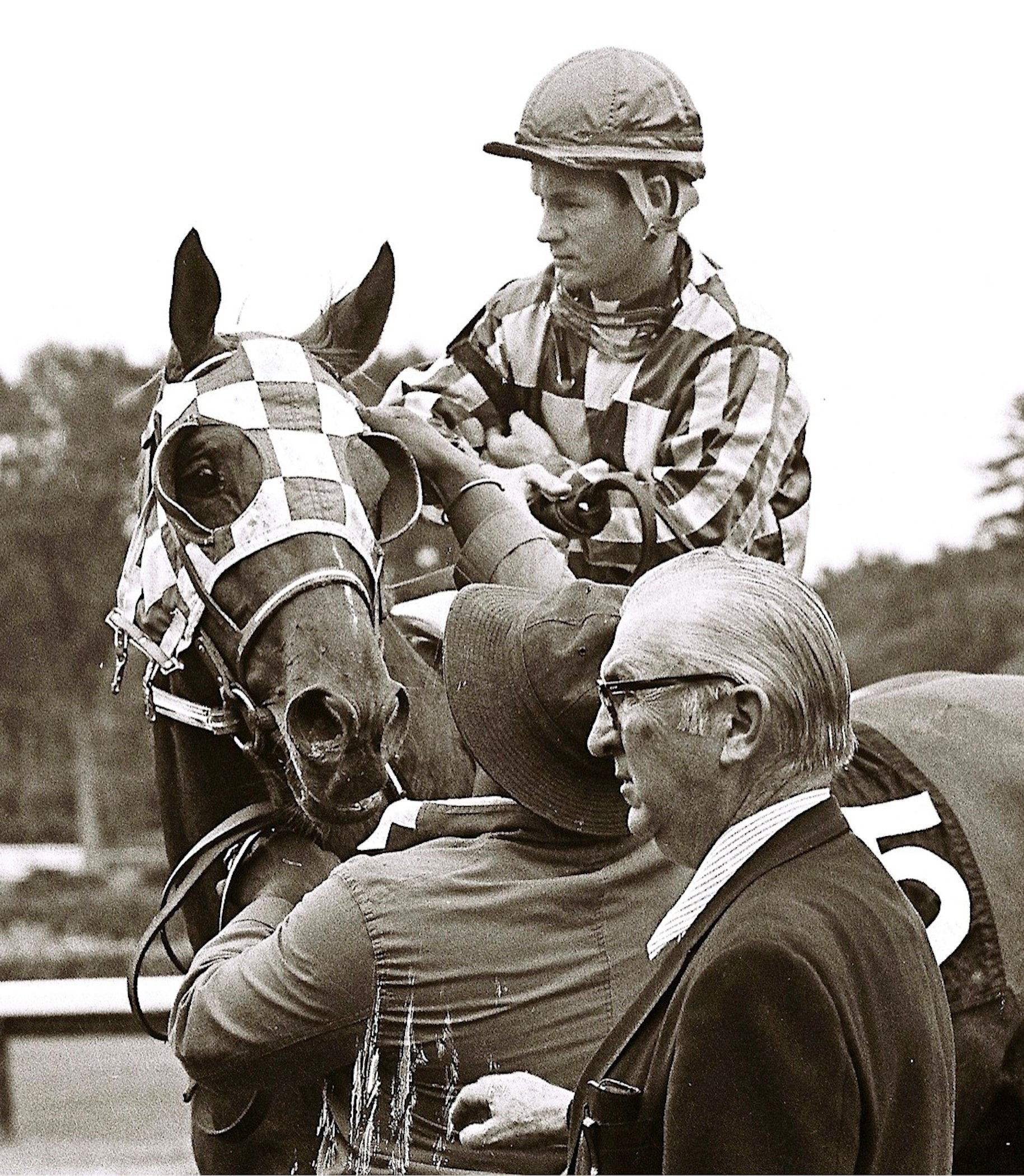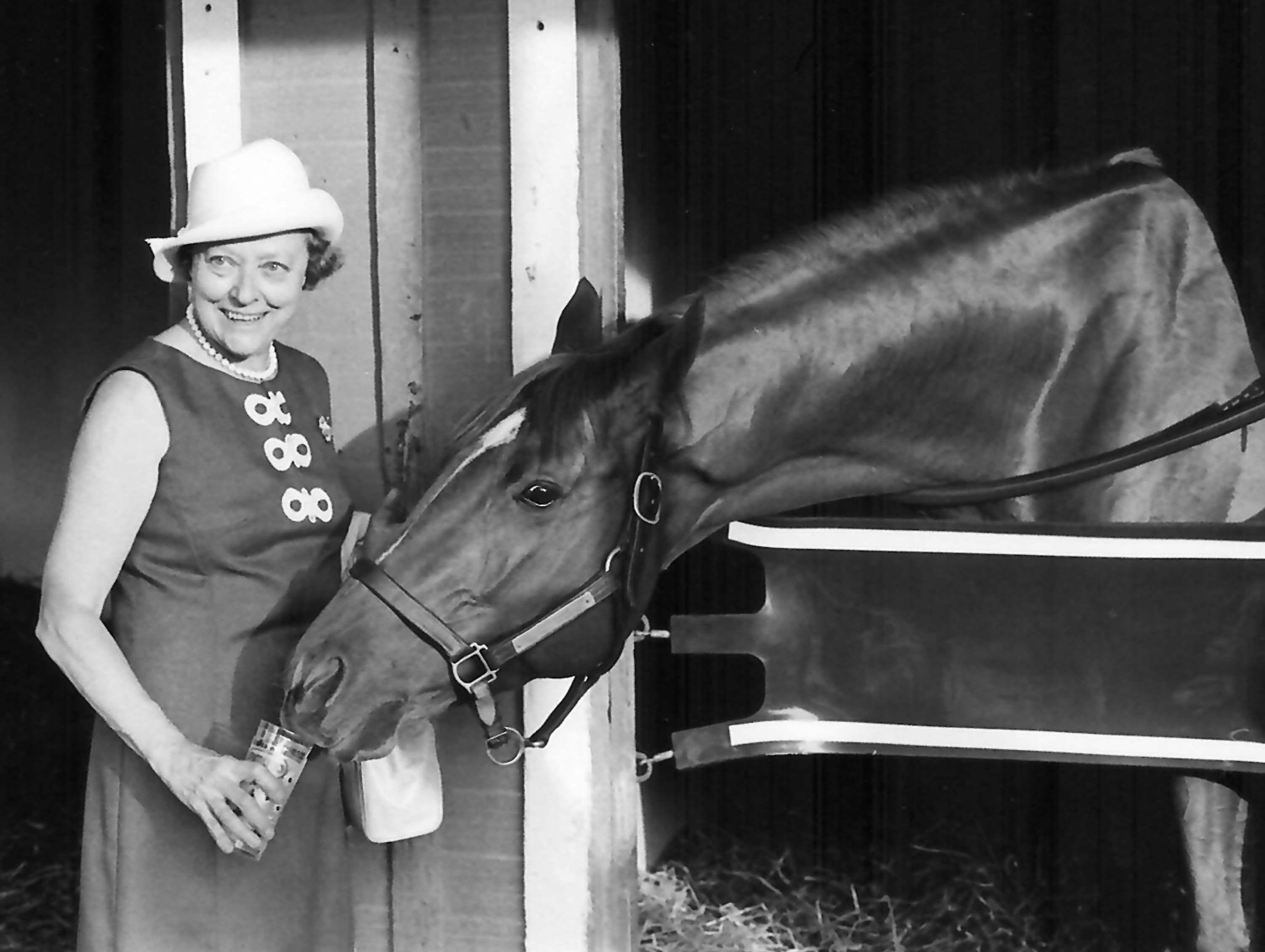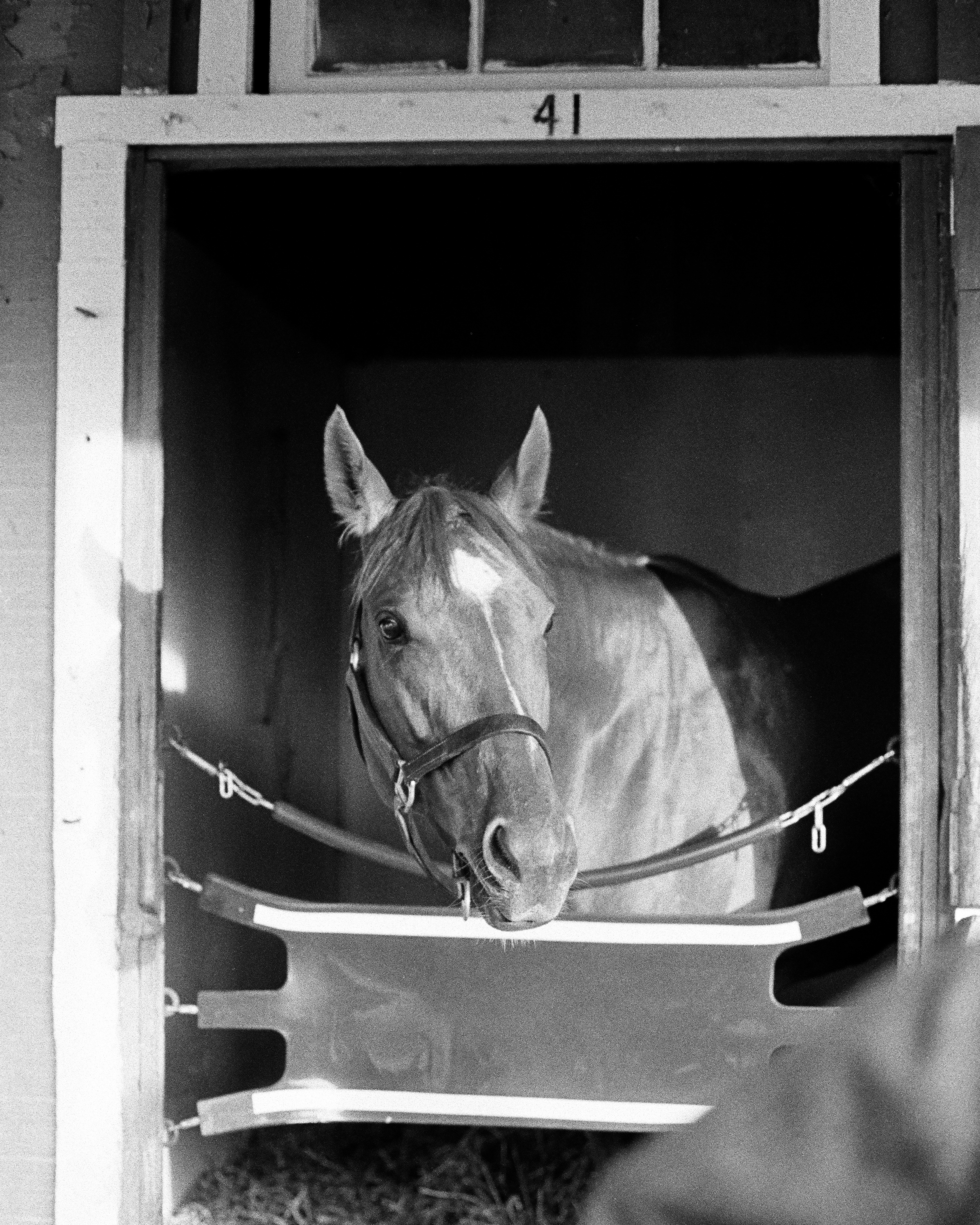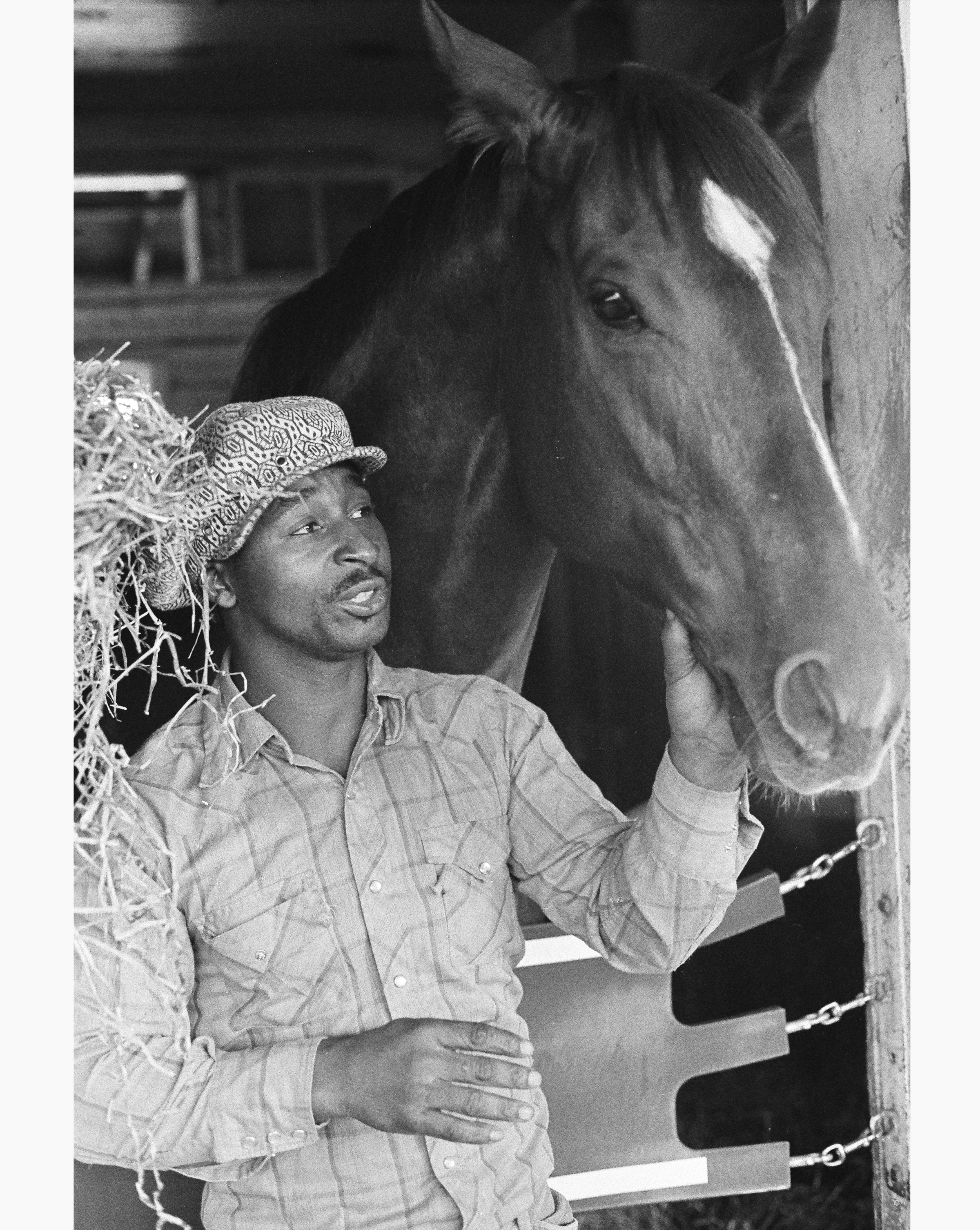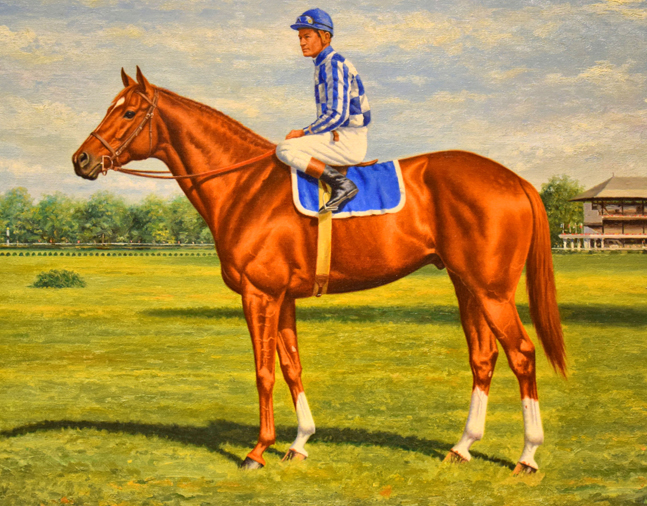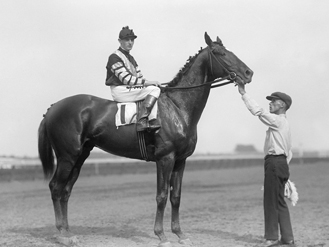Secretariat (VA)
When he won the Triple Crown in 1973 — setting records in the Kentucky Derby, Preakness Stakes, and Belmont Stakes — Secretariat became the first horse since Citation in 1948 to sweep the series. In the process, the son of Bold Ruler became an American icon and carved out an enduring legacy as one of the greatest racehorses in history.
Racing Record
21
Starts
| 1972 | 9 | 7 | 1 | 0 | $456404 $456,404 |
| 1973 | 12 | 9 | 2 | 1 | $860404 $860,404 |
Biography
When he won the Triple Crown in 1973 — setting records in the Kentucky Derby, Preakness Stakes, and Belmont Stakes — Secretariat became the first horse since Citation in 1948 to sweep the series. In the process, the son of Bold Ruler became an American icon and carved out an enduring legacy as one of the greatest racehorses in history.
Secretariat was the product of a foal-sharing arrangement between Meadow Stud and Ogden Phipps, whose mother, Mrs. Henry Carnegie Phipps, bred and raced Bold Ruler. Meadow Stud won a coin toss that determined which party got which foal from the mating of Meadow Stud mares to Bold Ruler. Secretariat’s fate was decided at the Saratoga meeting in 1969 when Meadow Stud, led by Penny Chenery at the time, won the coin toss for the yet unborn foal of Somethingroyal, whose earlier offspring included champion Sir Gaylord.
Bred in the name of Meadow Stud, Secretariat was foaled at The Meadow near Doswell, Virginia, on March 30, 1970. Trained by Hall of Famer Lucien Laurin and ridden in all but three of his starts by Hall of Famer Ron Turcotte, Secretariat broke his maiden in his second career start on July 15, 1972, at Aqueduct. Turcotte was aboard for the first time in Secretariat’s next start and the chestnut colt rolled to an allowance victory at Saratoga. As the 2-5 favorite, Secretariat’s performance drew universal praise.
“You carry an ideal around in your head, and boy, I thought, ‘This is it.’ I never saw perfection before,” veteran sportswriter Charles Hatton said. “I absolutely could not fault him in any way. And neither could the rest of them and that was the amazing thing about it. The body and the head and the eye and the general attitude. It was just incredible. I couldn't believe my eyes, frankly.”
Already generating significant buzz in the racing community, Secretariat proceeded to win the Sanford, Hopeful, and Futurity in succession before being disqualified and placed second in the Champagne Stakes. In the Hopeful, Secretariat covered the 6½ furlongs in 1:16⅕, only three-fifths of a second off the track record.
After the Champagne, Secretariat won the Laurel Futurity by eight lengths and missed the track record by only one-fifth of a second. He closed out his juvenile season with a 3½-length victory in the Garden State Stakes. With a record of 7-1-0 from nine starts and earnings of $456,404, Secretariat won the Eclipse Awards for Horse of the Year and Champion 2-Year-Old Male.
In January of 1973, Christopher Chenery, the founder of Meadow Stable, died and the taxes on his estate almost forced his daughter, Penny, to sell Secretariat. Together with Seth Hancock of Claiborne Farm, she instead syndicated the horse, selling 32 shares worth $190,000 each for a total of $6.06 million, a world syndication record for the time, surpassing the previous record for Nijinsky of $5.44 million in 1970. Chenery retained four shares in Secretariat and control of his 3-year-old campaign with the agreement he would be retired at the end of the year.
Secretariat wintered in Florida and made his 3-year-old debut on March 17, 1973, in the Bay Shore Stakes at Aqueduct. Secretariat was an easy winner by 4½ lengths. Secretariat then matched the track record in the Gotham, getting the mile in 1:33⅖. In his final prep for the Kentucky Derby, Secretariat finished a disappointing third behind Angle Light and Sham in the Wood Memorial.
A crowd of 134,476, at the time the largest to that date for a horse race in North American history, turned out for the 1973 Kentucky Derby. Secretariat battled with Sham down the stretch before pulling away to win by 2½ lengths. Secretariat set the track record for 1¼ miles at 1:59⅖, running each quarter-mile faster than the previous one. In the Preakness, Secretariat again defeated Sham by 2½ lengths. His official time of 1:53 (originally recorded at 1:54⅖) set a stakes record.
Following the Preakness, Secretariat appeared on the covers of Time, Newsweek, and Sports Illustrated. William Nack wrote, “Secretariat suddenly transcended horse racing and became a cultural phenomenon, a sort of undeclared national holiday from the tortures of Watergate and the Vietnam War.”
Only four horses, including Sham, ran against Secretariat in the Belmont Stakes. In one of the most remarkable performances in sports history, Secretariat won by an astounding 31 lengths. He ran the fastest 1½ miles on dirt in history. The time of 2:24 broke the stakes record by more than two seconds. If the Beyer Speed Figure had been developed during that time, Andrew Beyer calculated that Secretariat would have been given a figure of 139, which would have been the highest he’s ever assigned.
Kent Hollingsworth of The BloodHorse said, “Two twenty-four flat! I don't believe it. Impossible. But I saw it. I can’t breathe. He won by a sixteenth of a mile! I saw it. I have to believe it.”
Secretariat became the ninth Triple Crown winner and the first in a quarter-century. A total of 5,427 pari-mutuel tickets were never redeemed, as numerous fans decided to hold them as keepsakes of the iconic performance.
Following the Triple Crown, Secretariat was 1-20 in the Arlington Invitational. He won by nine lengths in 1:47 flat, only one-fifth of a second off the track record for 1⅛ miles owned by Damascus. Facing older horses for the first time in the Whitney at Saratoga, Secretariat broke poorly and suffered a shocking defeat by a length to Onion. Secretariat was reported to not be in the best of health in his Whitney defeat and was sluggish for several days following the loss.
Secretariat redeemed himself in the inaugural Marlboro Cup, setting a world record for 1⅛ miles of 1:45⅖. He defeated his older stablemate Riva Ridge, Cougar II, Onion, Annihilate ’em, Kennedy Road, and Key to the Mint in the star-studded event. Secretariat then finished second to Prove Out in the Woodward before making his turf debut in the Man o’ War Stakes. In winning the 1½-mile Man o’ War, Secretariat set a Belmont Park course record of 2:24⅘.
In his final career start, Secretariat traveled to Canada to contest the Canadian International at Woodbine. With Eddie Maple substituting for the suspended Turcotte, Secretariat won easily by 6½ lengths to conclude his remarkable career with a record of 16-3-1 from 21 starts and earnings of $1,316,808.
Secretariat was again named Horse of the Year and added the Eclipse Awards for Champion 3-Year-Old Male and Champion Turf Horse.
In November of 1973, Secretariat arrived at Claiborne Farm for stallion duty and occupied the former stall of his sire, Bold Ruler. Secretariat went on to sire 57 stakes winners, including Hall of Fame member and Horse of the Year Lady’s Secret , as well as Risen Star, winner of the Preakness and Belmont. Secretariat’s biggest impact came as a broodmare sire; his maternal grandsons included Storm Cat, A.P. Indy, Summer Squall, Gone West, Chief’s Crown, and Dehere.
Secretariat was euthanized on Oct. 4, 1989, at the age of 19 because of complications from laminitis. He was buried at Claiborne.
Achievements
Eclipse Award Horse of the Year — 1972
Eclipse Award Champion 2-Year-Old Male — 1972
Eclipse Award Horse of the Year — 1973
Eclipse Award Champion 3-Year-Old Male — 1973
Eclipse Award Champion Turf Horse — 1973
Triple Crown Highlights
Won the Kentucky Derby — 1973
Won the Preakness Stakes — 1973
Won the Belmont Stakes — 1973
Media
